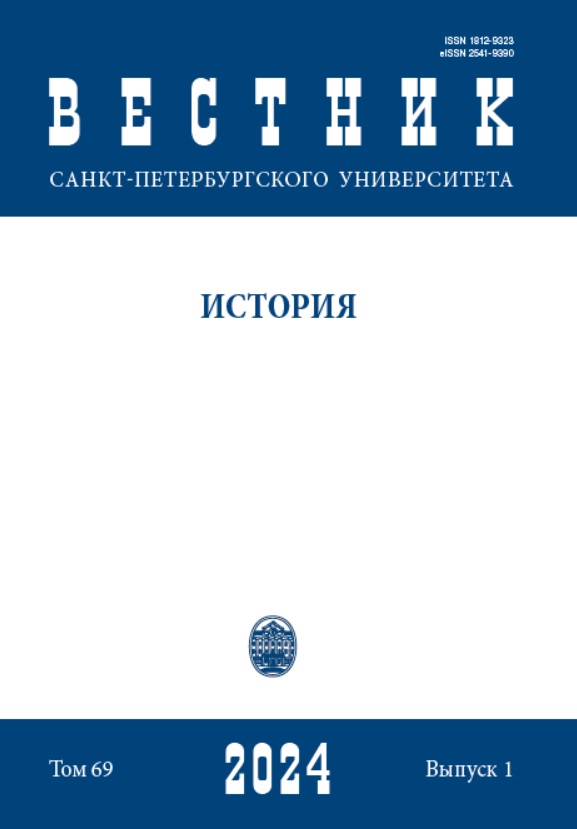The Food Aspect of the Daily Life of Logging Workers of the Volga Region during the Years of Pre-war Modernization
DOI:
https://doi.org/10.21638/spbu02.2024.110Abstract
The issues of nutrition and food security comprise an important part in the scholarship on the history of everyday life. This article addresses this topic with regard to logging workers of the forest trusts of the Middle Volga region in comparison with all-Union trends. The territorial framework includes the modern regions of Penza, Samara, Ulianovsk, and the Republic of
Mordovia. The article shows the dynamics of solving the food problem in the region. The food shortage in logging camps was most acute in 1930–1931. With the creation of a food supply system for forest workers, the unresolved issues in the second half of the 1930s were the production of low-quality bread and interruptions in the supply of flour, pasta, sugar, and other food products to individual forest posts. The author of the article for the first time introduces into the scholarship quantitative indicators of the presence of shopping units and bakeries in the logging camps of the Kuibyshev region and the Autonomous Soviet Socialist Republic of Mordovia in the third five-year plan. The article also analyses the degree of food provision of
timber farms of forestry trusts. In the Middle Volga region, food supply in the third five-year plan was best established in the “Sredles” trust of the People’s Commissariat of Heavy Industry. In the “Kuibyshevles” system of the People’s Commissariat of Forestry, the forest camps were provided with shopping units and bakeries to an insufficient extent. The food problem was
exacerbated by organizational deficiencies in the trading system.
Keywords:
the history of everyday life, food supply, seasonal workers, the “Sredles” trust, the “Kuibyshevles” trust
Downloads
References
Downloads
Published
How to Cite
Issue
Section
License
Articles of "Vestnik of Saint Petersburg University. History" are open access distributed under the terms of the License Agreement with Saint Petersburg State University, which permits to the authors unrestricted distribution and self-archiving free of charge.





